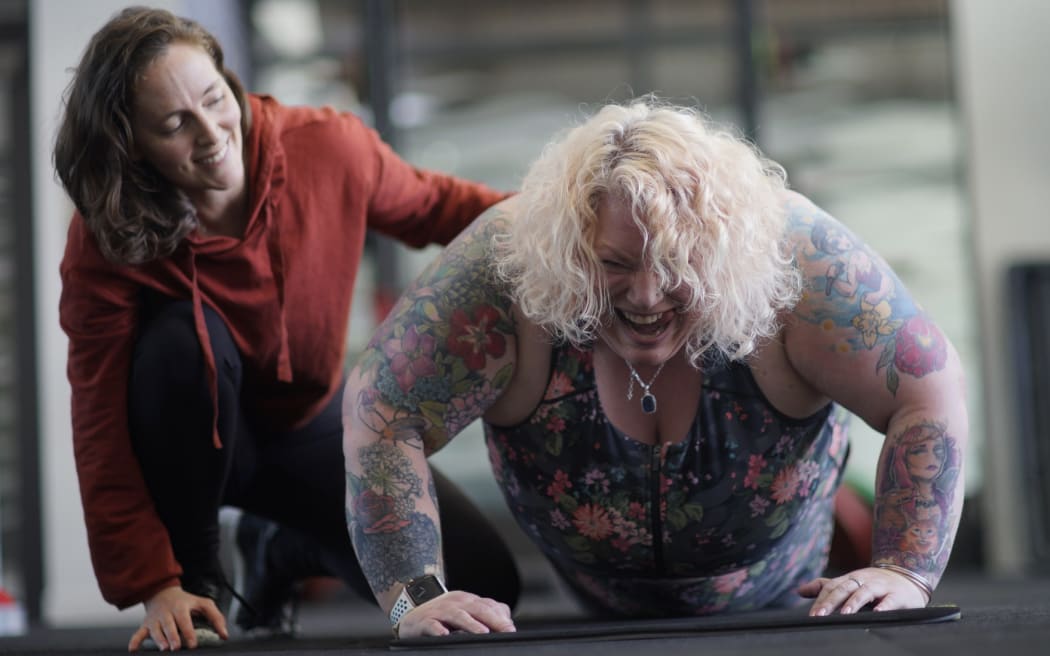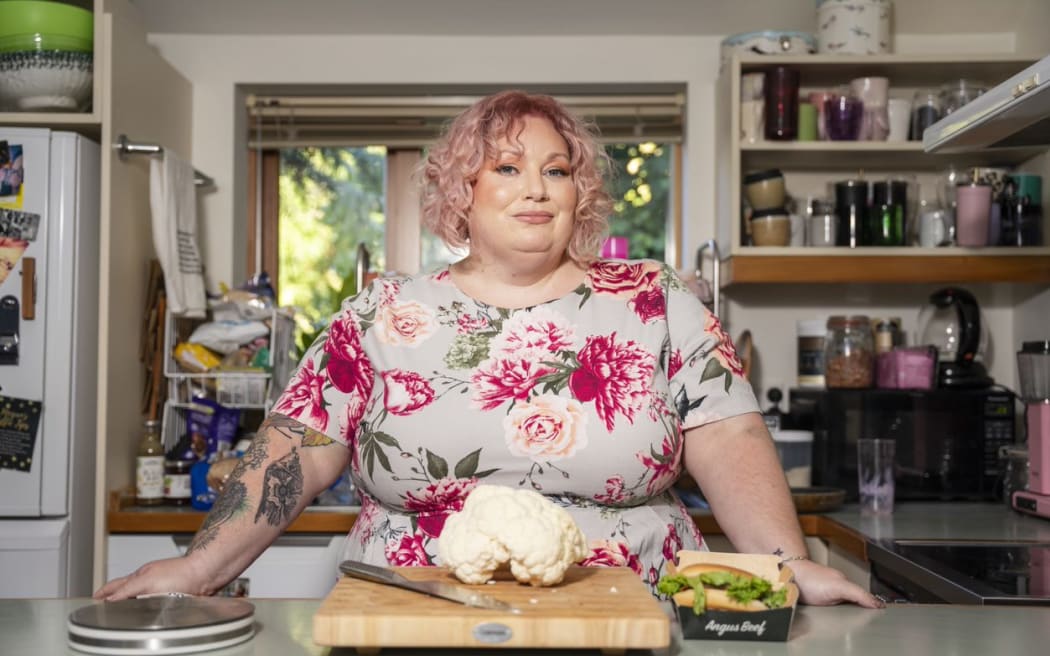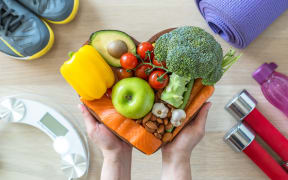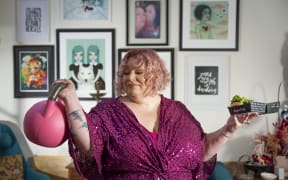
Megan Whelan with her fitness coach, Nellie Oakley. Photo: George Wilesmith
According to the fitness tracker I religiously strap to my wrist every morning, in 2022 I do more than twice the activity I did in 2021. This is perhaps unsurprising, based on the previous columns I have written about exercise, but it is deeply shocking to me.
Like a lot of us, I have stopped and started many an exercise regime. I've committed to daily walks and petered out after three days, or when the weather got too bad. I've attempted a Couch to 5K before realising that running, to be honest, sucks. I've loved yoga, but when life got stressful and busy my daily practice was just another chore, even when it was exactly what I needed.
So it is astonishing to me that, but for my bout of Covid-19, I have been at the gym at least once every week this year. Even on holiday, I've found ways to get my lifting fix in - entertaining my boyfriend doing lateral raises with cans of baked beans in a bach in the middle of nowhere.
This is a privilege.
Leaving aside the cost of the gym and a personal trainer, the time, flexibility and wherewithal to be able to exercise safely and comfortably is out of the reach of so many people. And yet, it is the thing that is most helping with my diabetes management.
Not only does the exercise itself drive insulin sensitivity (the opposite of insulin resistance), when I spoke to Dr Rosemary Hall, she said exercise "absolutely changes the way glucose is taken up". It's seen most in people with type 1, who may have to alter their insulin doses based on doing more or less intense exercise. And, she says, increased muscle mass helps to drive insulin sensitivity.
Along with dietician Laurette Cummins, the person that has the most impact on my health this year (other than me) is Nellie Oakley, my coach. I was seeing her before the diagnosis, but she was the fourth person I told - before most of my friends, before my boss, before I published it for thousands to read.
This isn't an ad. I pay for my sessions, and in the same way I would never recommend a diet, I would never recommend a professional. What works for you and your health and your life, will be wildly different from what works for me and mine. If you can afford one, find someone who works for you.
I knew Nellie worked for me when she had me doing bicep curls one day and said, "If that weight gets too heavy, I will just pop these lighter ones over here". Never one to back down from a challenge, I was determined to stick out the heavier weight. I later realised she'd figured me out, and that I was possibly in quite a lot of trouble.

Photo: RNZ / Rebekah Parsons-King
In the gym, our conversations range from politics to periods to protein. But they often come back to the ways gym culture and the fitness industry push people away from movement.
"Movement and exercise does not have to be a hard slog or punishment or something that makes you totally miserable," Nellie says. "Movement should make you feel good. Finding something that you enjoy is the key to making it sustainable and realistic for your life. That doesn't mean you don't challenge yourself or sometimes find it hard work, but ultimately it should bring you joy."
Nellie says my diagnosis didn't change much for us in the gym, because we were already working on things that would help - building muscle and mobility. But it did make her sad for me.
"Knowing now the discrimination that people with a diagnosis face and the shame they deal with (like choosing not to disclose their diagnosis), I realise that society, in all its fatphobic glory, tells people with a diabetes diagnosis that they brought this upon themselves because they are lazy and have no self-control. Which is absolutely abhorrent and shows how little they (and in fairness, how little our medical professionals) understand about diabetes and people that have it."
Nellie never weighed me - that's not her vibe. But she thinks the work is paying off.
"You've definitely built more muscle (which will be a great thing for helping manage your blood sugar), your body shape has changed, and I suspect you've lost body fat. But of course, we never measured those things, so I cannot give any figures on those. But you've noticed a difference in your body, and I'd just like to let people know how proud you are of your muscles and show them to me at any chance."
I am super proud of my muscles. It's weird, because in the genetic lottery that gave me a propensity to type 2, I also seem to have picked up an ability to grow muscle. you win some, you lose some. But they represent something to me: A newfound joy in learning things about my body, maybe - in a way that's not about what's wrong with it - or just stubbornness in the face of the people who like to tell me the diabetes is the result of my laziness. Let's compare deadlifts.
Nellie says you don't have to join a gym to get in movement - dance in your kitchen, stretch, join a club, walk to work.
"You also do not have to completely overhaul your life. Slow, incremental changes are going to be more realistic and sustainable. Committing to one or two movement sessions per week in the beginning is more likely to be achievable than five or six. And once you feel like you have those one or two sessions per week nailed and a regular part of your routine, then add in one more, gradually adding in until you're at your manageable and sustainable level going forward."
And be very, very wary of social media.
"Just because you saw someone do it on Instagram, doesn't mean you should do it or are now an expert on that particular exercise. Social media likes to show us the most extreme things, like handstands or people with low body fat percentage, or people doing super heavy deadlifts.
"Social media can be great to inspire us, and there are some legitimate, amazing people on there who are qualified and know their stuff, but be discerning with your attention and search out help in real life if you do want to try some extreme things."
I don't want to evangelize - though if you're willing to listen, I will absolutely buy you a drink and tell you all my theories about why resistance exercise is the best. I saw my physio a few weeks ago, with a long list of complaints related to all this movement I now do. "Exercise is dumb," I said. "It just causes injuries."
Sure, he said - but not doing it is way worse. Dammit.





